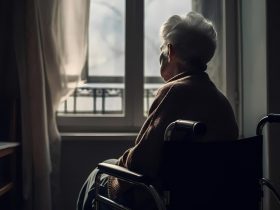Disadvantaged social positions linked to harmful work patterns
By Lori Solomon HealthDay Reporter
THURSDAY, April 4, 2024 (HealthDay News) — Employment patterns in young adulthood impact physical and mental health in middle adulthood, according to a study published online April 3 in PLOS ONE.
Wen-Jui Han, Ph.D., from the Silver School of Social Work at New York University in New York City, examined how employment patterns throughout working lives, based on work schedules, may shape health (sleep hours and quality, physical and mental functions, and the likelihood of reporting poor health and depressive symptoms) at age 50 years. The analysis included longitudinal data from the National Longitudinal Survey of Youth-1979 with employment patterns starting at age 22 years (approximately 7,336 participants).
Han found that having early standard hours before transitioning into volatile schedules (early ST-volatile) work pattern between ages 22 and 49 years was consistently, significantly associated with the poorest health at age 50 years, including the fewest hours of sleep per day, the lowest sleep quality, the lowest physical and mental functions, and the highest likelihood of reporting poor health and depressive symptoms. Non-Hispanic White women reported the most hours of sleep, and non-Hispanic Black men reported the fewest, but the opposite was true for sleep quality. The highest likelihood of reporting poor health at age 50 years was seen among non-Hispanic Black men with less than a high school education if they engaged in an employment pattern of early ST-volatile between ages 22 and 49 years. The lowest likelihood of reporting poor health was seen among non-Hispanic White men with a college degree or above if they engaged in an employment pattern of stable standard hours.
“Work that is supposed to bring resources to help us sustain a decent life has now become a vulnerability to a healthy life due to the increasing precarity in our work arrangements in this increasingly unequal society,” Han said in a statement. “People with vulnerable social positions (e.g., females, Blacks, low-education) disproportionately shoulder these health consequences.”
Copyright © 2024 HealthDay. All rights reserved.







